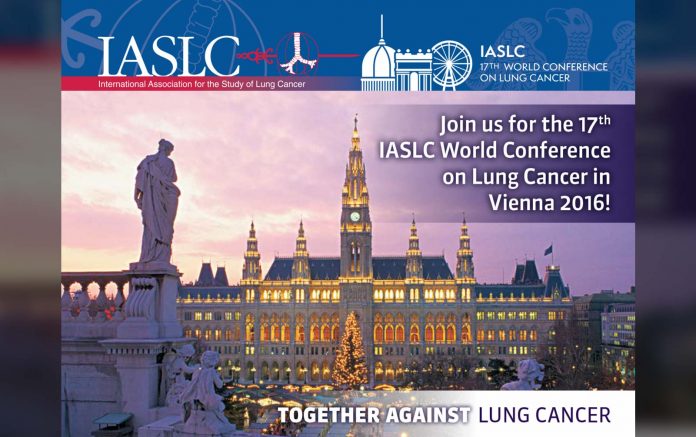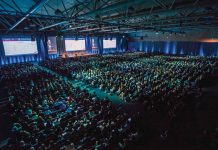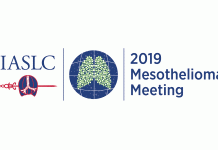By Lori L. Alexander, MTPW, ELS, MWC
The 17th IASLC World Conference on Lung Cancer (WCLC) promises to offer new data and exciting new developments on a wide range of topcs in lung cancer care. A host of scientific abstract presentations and invited sessions will be offered within the three major topics of the conference: active prevention, accurate diagnosis, and advanced care.
Active Prevention
Given that tobacco use is the most common preventable cause of cancer, tobacco control dominates under the topic of active prevention. “A major goal of WCLC 2016 will be to unite in order to become a stronger global voice for tobacco control,” says Robert Pirker, MD, Vienna, Austria, Chair of the Conference. Monday’s Plenary session will feature several prominent speakers on tobacco control, including Dr. Tabaré Vázquez, President of Uruguay, who will discuss his country’s success in implementing tobacco control measures. In addition, Vera da Costa e Silva, Secretariat of the World Health Organization’s Framework Convention on Tobacco Control, will discuss the impact of the Framework on global health. Several other sessions will focus on the current status of tobacco control in various regions of the world, in particular, Central Europe, Middle East, China, and Africa. Other sessions will address tobacco use in youth and new challenges in tobacco control, such as water pipes and e-cigarettes.
Accurate Diagnosis
Screening and staging are just two of the highlights. Once again this year, an all-day screening workshop will be held the day before the start of the conference. The goal of the workshop, led by Prof. John K. Field, the University of Liverpool, UK, and James L. Mulshine, MD, Rush University, Chicago, USA, will be to provide recommendations to IASLC on how it can best support leadership in the arena of lung cancer screening globally. In addition, invited sessions will address advances in lung cancer screening and precision screening. The new 8th edition of the TNM Staging Manual will be featured during Tuesday’s Plenary Session, with a discussion centering on how the new classification will change clinical practice. “The 8th edition will help us refine prognosis both at clinical and pathologic staging and stratify tumors in future clinical trials, but will require more attention from us in measuring tumor size, determining nodal disease status, searching for metastases, and using clinical judgment to recommend treatment,” says Ramon Rami-Porter, MD, Chair of the IASLC Staging and Prognostic Factors Committee.
Advances in Care
Recent studies have underscored the burgeoning promise of immunotherapy in lung cancer. Several sessions will include reports on emerging data on immune checkpoint inhibitors, alone, and in combination with each other immunotherapeutics, as well ascombinations with chemotherapy and radiation therapy. In addition, speakers in invited sessions will discuss the selection and monitoring of patients for immune checkpoint inhibitors, a crucial aspect of care for this class of drugs. Presentations on targeted therapies are also drawing attention, with new data on third-generation EGFR tyrosine kinase inhibitors, such as osimertinib; new ALK inhibitors, such as ceritinib and brigatinib; Hsp90 inhibitors, such as ganestespib; as well as other novel agents. Speakers will also discuss the use of targeted therapies and immunotherapies in earlier disease stages with the aim of enhancing cure rates.
At the conference, please keep up to date by reading synopsies of presented studies in WCLC Daily News, the on-site newspaper. Also, look for highlights from the conference in the February 2017 issue of IASLC Lung Cancer News. ✦











